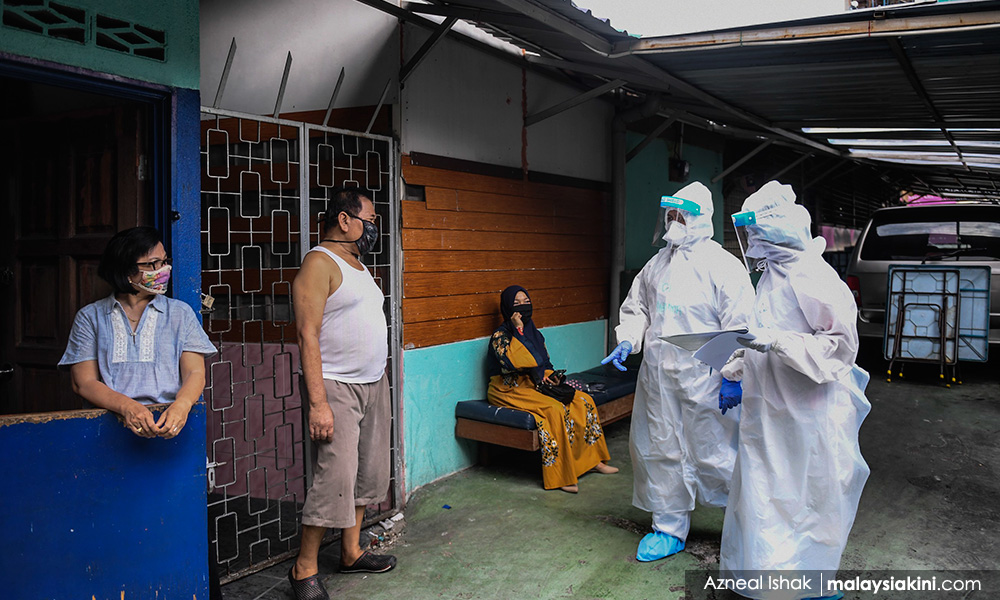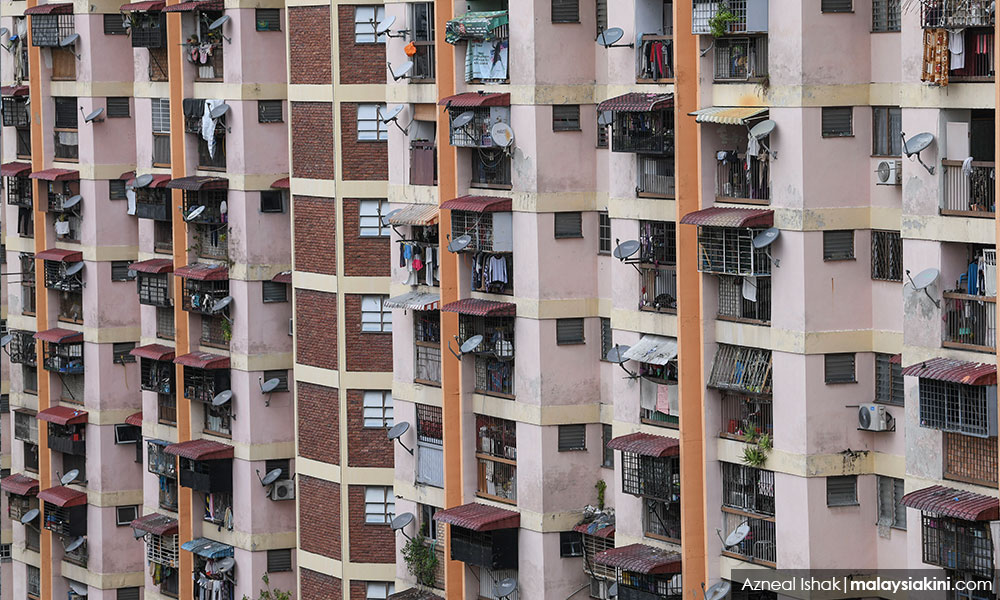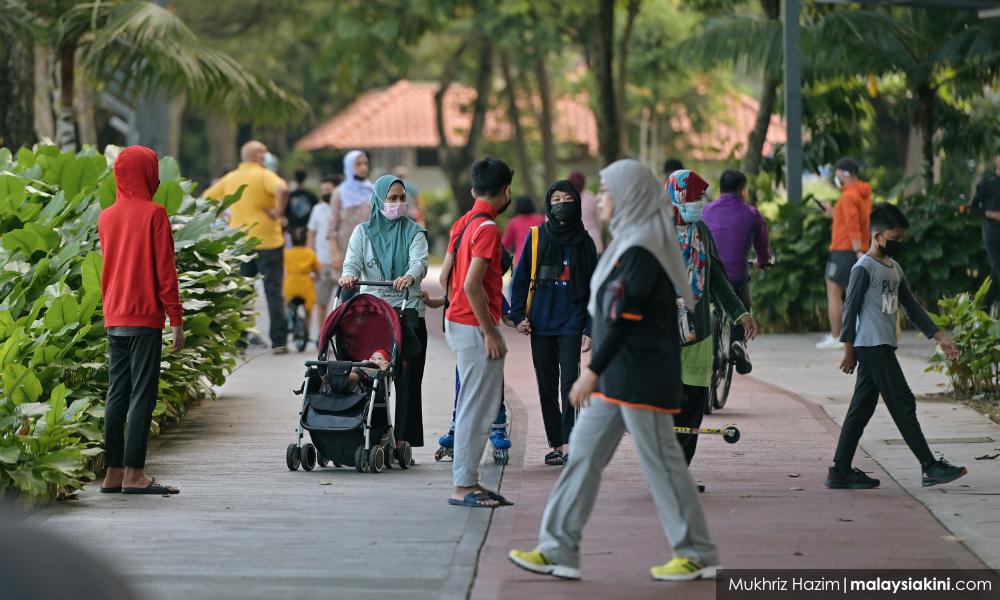COMMENT | Recognise social determinants to improve health
COMMENT | As Malaysia officially transitions to an endemic phase of Covid-19, the shadow of non-communicable diseases (NCDs) looms larger again.
The Health Ministry has already warned of prolonged NCD-related problems due to diagnosis and follow-up delays.
It has also recognised rising mental health problems during the pandemic. With public healthcare delivery already under strain even before Covid-19, it is time for us to look at the root of the problem, the social causes of disease.
M’sians living longer, not healthier
Over the years, the healthcare system has been lauded for its ability to provide health protection for its population. Subsidised public healthcare delivery has provided universal health coverage resulting in significant health improvements such as higher life expectancies alongside lower infant and maternal mortality rates.
However, although more Malaysians are now living longer, we are not necessarily healthier. While a Malaysian newborn in 2019 can expect to live up to 75 years, compared to 71.9 years in 1990, 9.5 of those years are estimated to be spent in poor health, 0.4 years more than in 1990.
A major contributor to the poor quality of life years is the prevalence of NCDs which cause many in our population to suffer chronic health problems. Significant NCDs in Malaysia include diabetes, heart disease, obesity and mental disorders.
Uneven distribution of health across population
The additional years of life gained over the decades are also not equally enjoyed across the population, with significant differences in health outcomes by gender, ethnicity, state and income.
Malaysians in states with higher per capita incomes (Kuala Lumpur, Sarawak, Selangor, Pulau Pinang and Malacca) have higher life expectancies.
A male born in 2020 in Sarawak or Kuala Lumpur is expected to live to about 74, whereas a male born at the same time in Perlis, Terengganu or Kelantan is expected to live up to 69 on average - five years less!

Lower-income households are less healthy on average. Contrary to popular presumptions, NCDs are also income correlated among Malaysian adults. More of the poorest fifth (B20) of adults have diabetes, high blood pressure and cholesterol problems.
In 2015, 20.4 percent of B20 adults suffered from diabetes compared to 14.8 percent of the top fifth (T20) of adults. Similarly, 38.3 percent of B20 adults suffered from high blood pressure compared to 27.1 percent of T20 adults.
Social determinants of health
Such health inequalities suggest that the provision of universal healthcare access alone is not enough to ensure good health for all. Ensuring the population is able to access quality healthcare is necessary, but not sufficient.
Health outcomes are also shaped by living conditions, perhaps even more than our interactions with the health system. This points to the ‘social determinants of health’ (SDOH). This refers to how people live, grow, learn, work, play and age, all of which influence health outcomes in the population.
The SDOH include factors such as housing, education, jobs, incomes, access to nutritious food and physical activity. Some factors are quite straightforward, eg, those with limited access to nutritious food will probably have unhealthy diets, raising the risk of NCDs such as obesity and heart disease.
Some factors, such as housing, are not normally associated with health, but actually, directly impact it. Living in overcrowded houses increase the risk of spreading infectious diseases, while poor housing quality, eg damp and mouldy housing, has been linked to chronic illnesses such as asthma.

Also, children born to parents with less education are more likely to live in conditions less conducive to good health including unsafe surroundings and less access to recreational facilities.
More health awareness necessary
Historically, Malaysia’s emphasis on investing heavily in curative care services, ie to treat diseases, has served it well. However, the shift of disease patterns to more cases of preventable NCDs demands changes in strategy, policy and funding.
In November 2021, the government explicitly turned to specifically tackling NCDs by launching the Agenda Nasional Malaysia Sihat (ANMS), a 10-year plan aimed to promote a culture of healthy living.
The ANMS mainly seeks to enhance health knowledge among the population to encourage voluntary behavioural change and increase awareness of the need for preventive measures, including regular health screenings.
Health awareness alone not enough
Even if lifestyle or behavioural factors were equalised, health inequities will persist among socioeconomic groups.
Responsibility for addressing the causes of disease is not just left to individuals and their health awareness, as many other factors are also influential.
For example, even if more people are exposed to health education, adopting healthier lifestyles remains difficult if they work in unsafe or stressful environments, as they will remain vulnerable to occupational and lifestyle hazards.
Similarly, conventional obesity prevention efforts focused on behavioural changes, such as through information and social marketing campaigns, may disproportionately benefit those with higher incomes.
Prevention is key
What is needed is a holistic preventive approach to ensuring ecologically sustainable, adequate, nutritious and affordable food supplies for healthier diets. More supportive home, education and work environments can reinforce healthier lifestyles, enabling all to make healthy choices.

While the ANMS would involve direct participation by the Housing and Local Government Ministry, more initiatives are needed to ensure better policies and practices to promote health and health equity.
Integration of pro-health dimensions in all social policies and considering the health impacts of such policies allow us to tackle the causes of disease in Malaysia and reduce the population shares with chronic health conditions.
This strategy to tackle the SDOH has been dubbed Health in All Policies, closely related to a ‘whole of government’ approach.
Living longer is no longer the main policy goal. Instead, we must consider how to improve healthy life expectancy, ie the years we are able to live in good health without diseases and disabilities.
Protecting the population from current and future health challenges requires paying far more attention to prevention rather than cure. If the government does not move to invest in prevention now, it may be faced with a future penalty exacted by an ageing population plagued with poor health.
Addressing SDOH in social policies is important, not only because of its potential to improve overall population health, but also the distribution of health.
ILYANA MUKHRIZ is a research associate at Khazanah Research Institute.
The views expressed here are those of the author/contributor and do not necessarily represent the views of Malaysiakini.
RM12.50 / month
- Unlimited access to award-winning journalism
- Comment and share your opinions on all our articles
- Gift interesting stories to your friends
- Tax deductable
